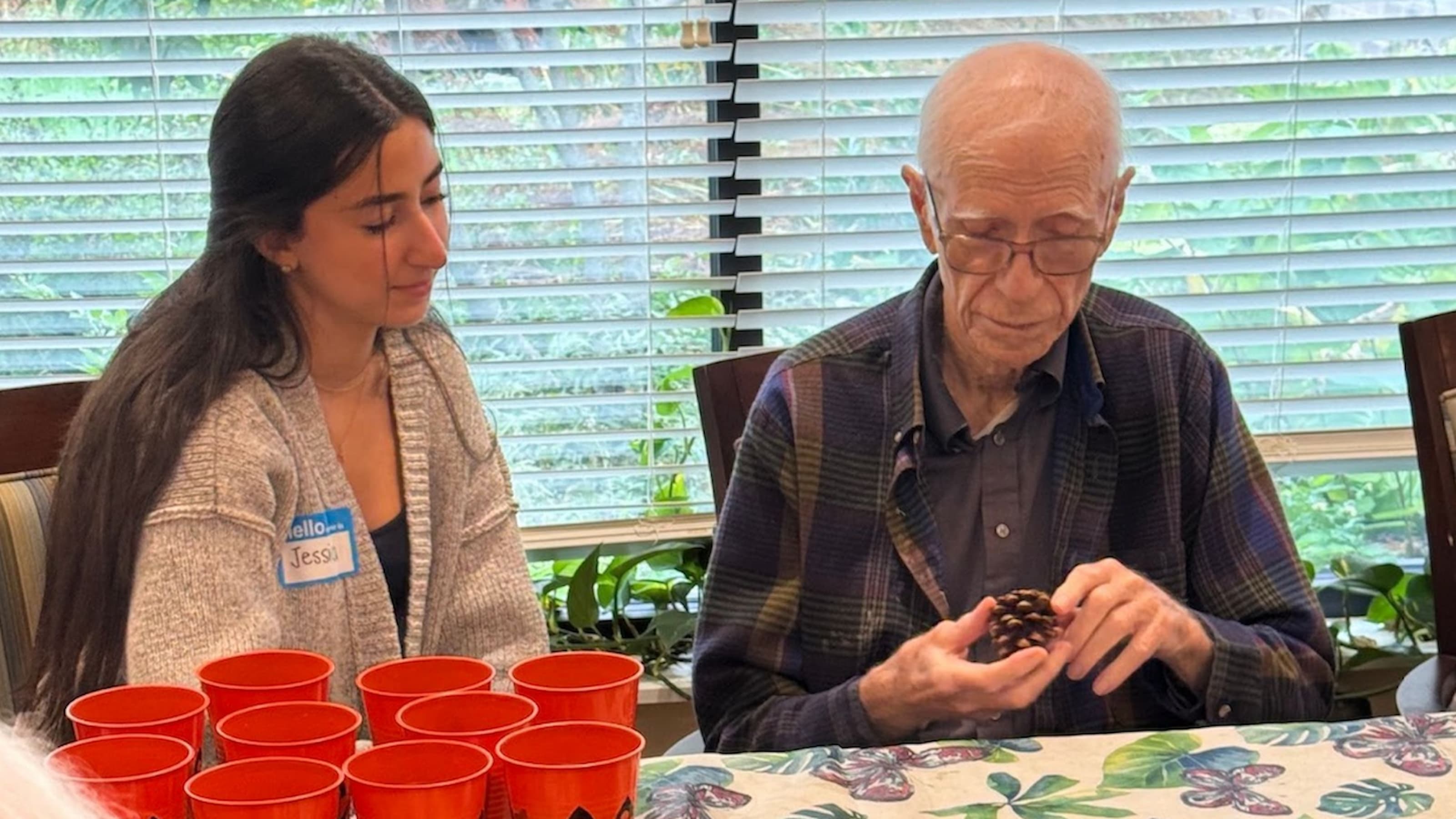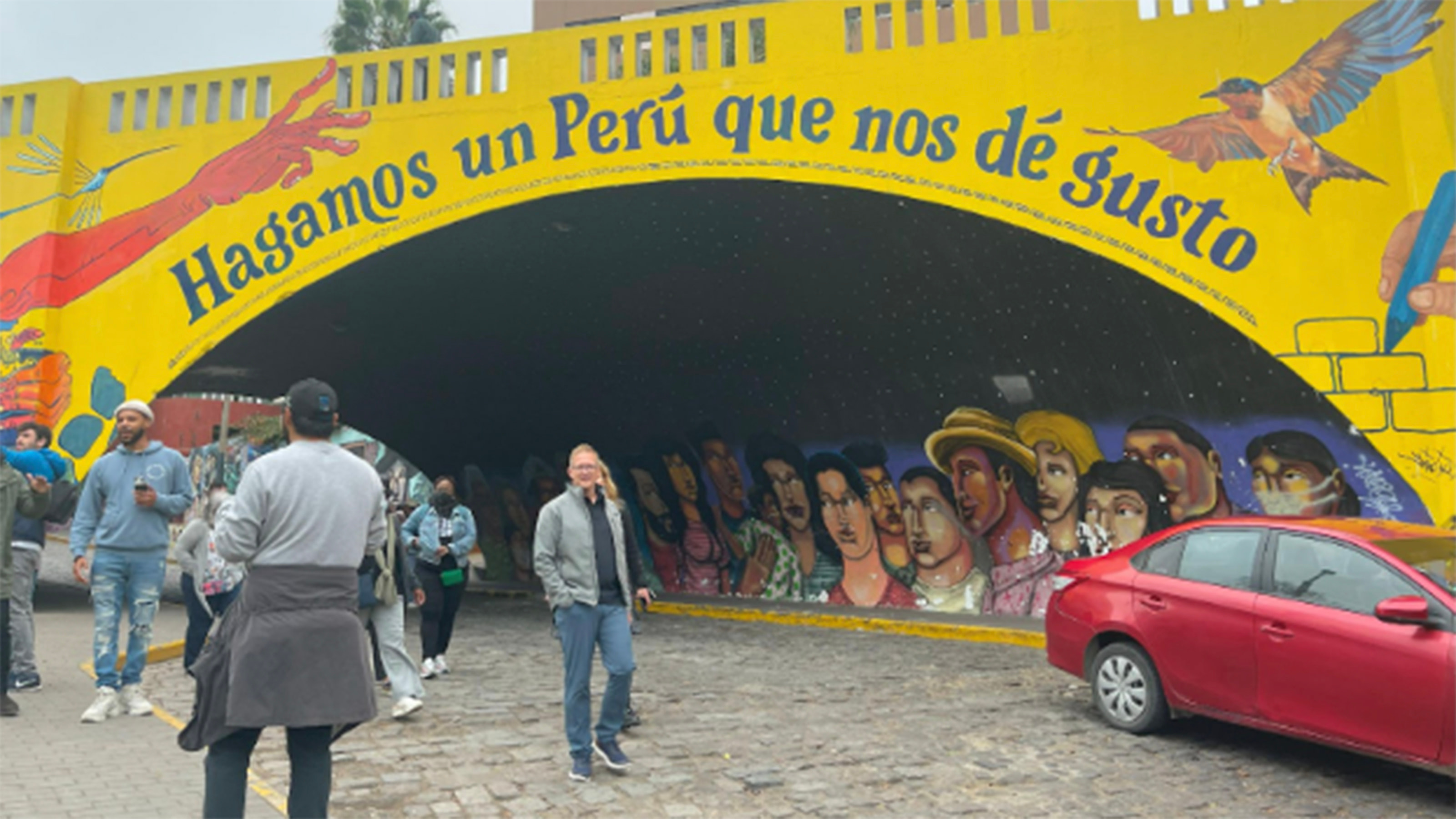Baby Box Program Aims to Decrease Infant Mortality Among Undocumented Immigrants
The baby boxes are gifted to undocumented immigrants who are pregnant or postnatal, with each box containing baby supplies and educational information for the mothers.
 An expectant mother receives a baby box at the Consulate of Mexico.
An expectant mother receives a baby box at the Consulate of Mexico.
- The Institute of Clinical Bioethics at St. Joe’s, in partnership with the Mercy Health System, have created a Health Promoter model for immigrant communities in Philadelphia.
- Part of this Health Promoter model is gifting undocumented mothers baby boxes that contain supplies for the infant and educational information for the mothers.
- The baby boxes are meant to help decrease the risk of SIDS, and are just one of many health services offered by the Health Promoter model’s community clinics.
This winter, Saint Joseph’s Institute of Clinical Bioethics delivered five baby boxes each to the Consulate of Mexico and the Consulate of Guatemala for expectant or postnatal immigrant mothers. The baby box program is part of a larger model called the Mercy Health Promoter model, which is a community outreach program run in partnership with the Mercy Catholic Medical Center. This program provides medical and health assistance to undocumented immigrant communities in Philadelphia, while also providing health education and access to health services.
Peter Clark, S.J., director of the Institute of Clinical Bioethics, says that the Health Promoter model is an example of Catholic principles in action.
“One of the main Jesuit values has always been the sanctity of human life,” he says. “It doesn’t matter if you’re undocumented or not; we’re all one. We’re doing everything we can to help moms give birth to healthy babies, and ensuring they are able to care for the baby after birth.”
Infant mortality is high among the undocumented Hispanic community in the United States. For families who can’t afford cribs, babies often sleep in beds with their parents, which leads to a higher percentage of Sudden Infant Death Syndrome (SIDS).
As such, each baby box contains supplies for the infant such as mattresses, sheets, bibs, onesies, diapers, bathtub thermometers and ear thermometers. For the mothers, the boxes also include vitamin D supplements and educational resources, such as brochures about breastfeeding, the benefits of prenatal vitamins and educational guides on what to expect when having a baby.
The baby box initiative was inspired by a Finnish program that began in the 1930s, which led to a drastic reduction in infant deaths. Through Saint Joseph’s memorandum of understanding with the Consulates of Mexico and Guatemala, the Institute was able to expand the baby box program beyond the Health Promoter model, giving the consulates the ability to distribute baby boxes to new or expectant mothers at their own discretion.
“Because of this new relationship with the consulates, we can help more mothers,” says Clark.
The Health Promoter model is popular among St. Joe’s students, who volunteer in overwhelming numbers at Mercy Health’s community based on their unique skill sets. Healthcare students provide medical aid, language students translate for patients and business students research the best way to provide proactive medical care while saving money for the Mercy Health System.
Ave Burleigh, a first-year MBA student at St. Joe’s and full-time graduate assistant, first learned about the program through a Christian medical ethics class, taught by Clark. Burleigh started volunteering at the community clinics and says she loved spending time at the baby box prenatal station.
“We’re doing everything we can to help moms give birth to healthy babies, and ensuring they are able to care for the baby after birth.”
Peter Clark, S.J.
director of the Institute of Clinical Bioethics“It provides a safe start for the baby,” explains Burleigh, who now runs the clinic’s prenatal program for mothers and is currently working on a research paper about the baby box program. “We want to study whether the baby box program has really cut down on infant mortality rates for undocumented infants.” After the baby is born, Burleigh checks in with the mothers at three, six and nine months. “The risk of SIDS decreases every three months,” she says.
Although it can be difficult to keep track of everyone who receives a box, Clark says that of the people they’ve kept track of, there have been no infant deaths.
Chemical biology major and Institute of Clinical Bioethics fellow Gerardo Rivera-Colon ’21 also volunteers at the clinics. He grew up in a Spanish-speaking household and wants to pursue a career in medicine. He is the main translator for medical residents and relays medical terms, diagnoses and patient referrals.
“Being an undergrad and wanting to pursue a career in medicine, I want to take in as much as I can,” Rivera says. “I’m seeing things at these clinics that I probably wouldn’t see until medical school. It feels like we’re in the field, seeing real-life scenarios I never thought I’d see.” He finds it gratifying to see the same faces at the clinics as time goes on. “If people come back again, it means we’re gaining their trust.”
Clark says the students have been incredible. “They are at the forefront of putting our Catholic principles into action. We could easily get 50 students to come to each session.”
Despite concerns that there wouldn’t be enough volunteers for the most recent clinic that occurred while students were still on winter break, they ended up having so many volunteers that they had to turn students away.
“That says a great deal about the dedication of St. Joe’s students, doing this for three to four hours on a Sunday, when they could have been watching football. It’s the same with the medical residents. They spend their weeks in ICUs working with COVID patients, and then they come to these clinics on a Sunday to work for free. They’re walking the walk.”



